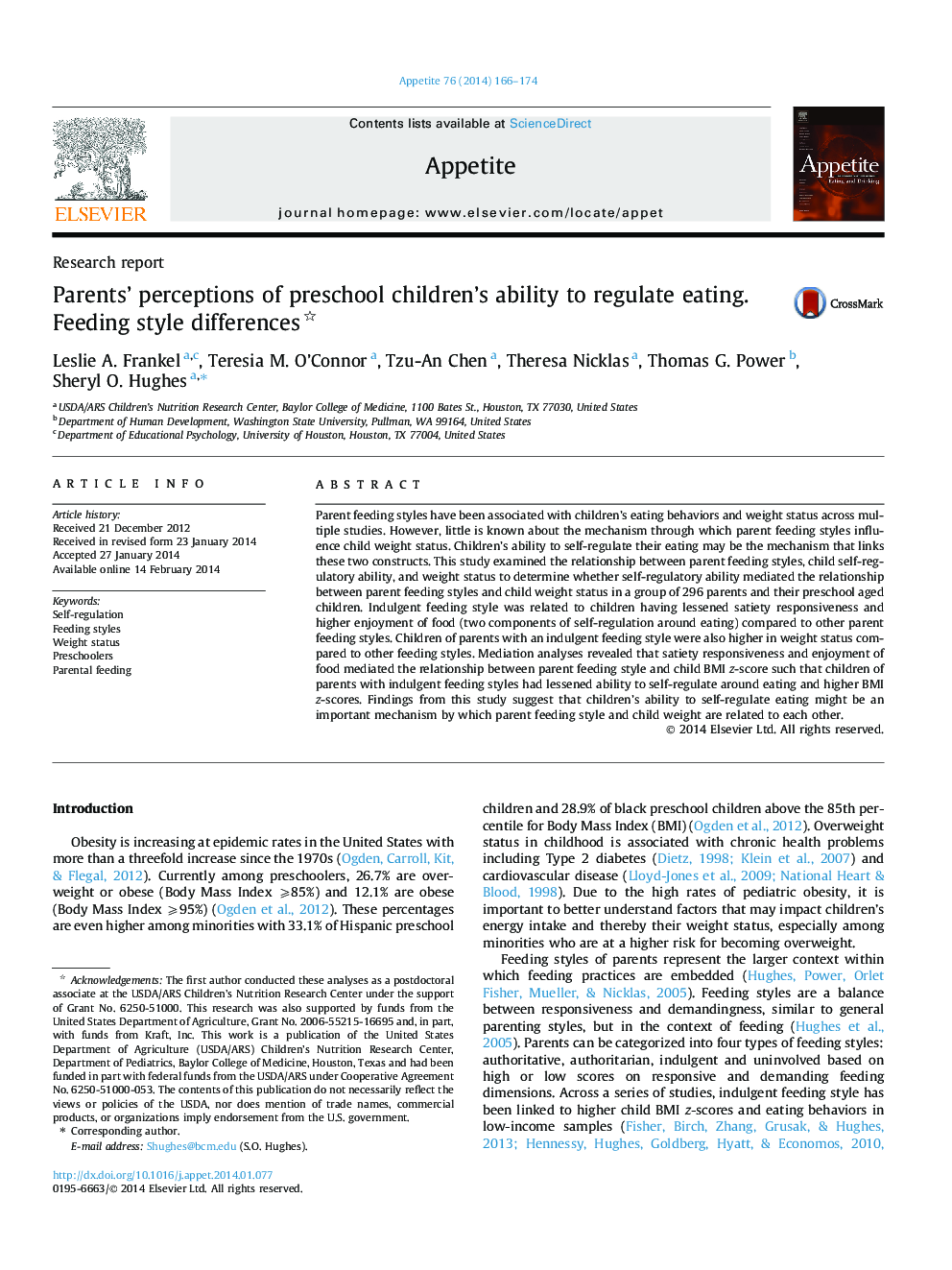| Article ID | Journal | Published Year | Pages | File Type |
|---|---|---|---|---|
| 939509 | Appetite | 2014 | 9 Pages |
•Parent feeding styles relate to children’s ability to self-regulate eating.•The indulgent feeding style relates to lessened ability to self-regulate eating.•Ability to regulate eating mediates the relationship between feeding style and weight.
Parent feeding styles have been associated with children’s eating behaviors and weight status across multiple studies. However, little is known about the mechanism through which parent feeding styles influence child weight status. Children’s ability to self-regulate their eating may be the mechanism that links these two constructs. This study examined the relationship between parent feeding styles, child self-regulatory ability, and weight status to determine whether self-regulatory ability mediated the relationship between parent feeding styles and child weight status in a group of 296 parents and their preschool aged children. Indulgent feeding style was related to children having lessened satiety responsiveness and higher enjoyment of food (two components of self-regulation around eating) compared to other parent feeding styles. Children of parents with an indulgent feeding style were also higher in weight status compared to other feeding styles. Mediation analyses revealed that satiety responsiveness and enjoyment of food mediated the relationship between parent feeding style and child BMI z-score such that children of parents with indulgent feeding styles had lessened ability to self-regulate around eating and higher BMI z-scores. Findings from this study suggest that children’s ability to self-regulate eating might be an important mechanism by which parent feeding style and child weight are related to each other.
